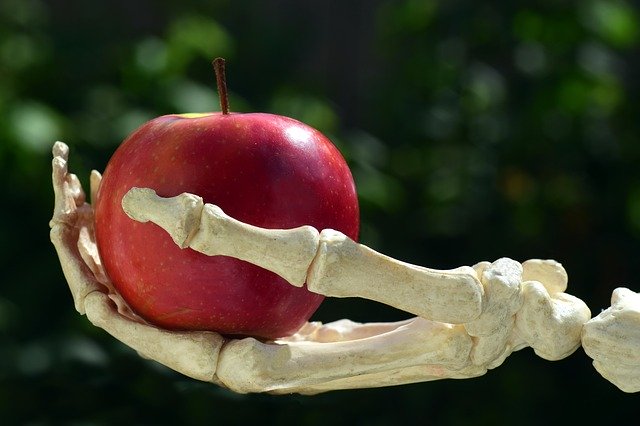The Importance of a Buyer Persona And How To Craft One

A tuned-in Buyer Persona is a necessary foundation for cost-effective and smart marketing and will help you focus your efforts. It describes your ideal customer and will help you target the right people with the right message at the right place.
Without it, you will be shooting in the dark, and you are much less likely to succeed with your awesome startup.
So what's a Buyer Persona?
A Buyer Persona is a detailed description of your ideal customer, with information such as age, gender, occupation, interests, and more. It's usually defined in a company's Brand Book.
Why do I need one?
A Buyer Persona makes you focused on what's who the most likely customer is. Your Buyer Persona could, of course, be off and should be adjusted along the way. But you got to have a starting point; as the old marketing quote goes: "cater to everyone, cater to no one."
In summary, you'll have a starting point when:
- Choosing the right type of marketing material to create: Videos? Articles? GIFs? Infographics? Podcasts? Images? Etc.
- Choosing the right message: Should we speak to people's feelings? If yes, what should we push? Or be more rational and talk about our Unique Selling Points? If yes, what points should we choose?
- Choosing channels to market in, like Reddit, Facebook, Slack, etc.
- Deciding how your website and product/service should look like.
To convert more people to become our customers.
Suppose you don't have a Buyer Persona. In that case, you are likely to spend countless hours marketing in the wrong channels, with non-converting messages not resulting in new customers. Believe me. I've been there.
I'm convinced. Get more concrete, pls!
Here's a real Buyer Persona for an online coffee startup I've founded:
What are they trying to achieve? Improve the quality of life at home
- Name: Lars
- Age: 32
- Gender: Male
- Address: Kungsholmen - Stockholm, Sweden
- Income: Upper range
- Occupation: IT-related consultant
- Education Degree: Bachelor's
- Married? No, but in a relationship.
- Children? No.
- Interests: Food, investing, live events, traveling.
- What we can help with: Make his home environment more pleasant by delivering great coffee and a good feeling attached to it.
- Business-specific info: Has a coffee brewing machine but not a coffee bean grinder.
- Places Lars spends time online/offline:
- Google: Searching for nicer furniture, new towels, wines, work-related peripherals, etc.
- Instagram: To get inspired and entertained and, to some extent, get social interaction.
- Youtube: To learn about improving his quality of life and his interests.
- Facebook Messenger/Groups: To discuss his interests with friends and arrange trips, meetups, etc.
- Forums such as Reddit: To take part in discussions and research.
- Online magazines: To get inspiration and learn more.
How do I get started!?
You can use the above template. Remember to back the attributes with data when possible. Here are a few examples from the Buyer Persona above:
- Name: Lars <- This is one of the most common names for 32-year-old males living in Kungsholmen, according to official statistics.
- Age: 32 <- We sell a premium product and need an audience with a good income. They also have to be open to subscribing to stuff and spend a lot of time online. Oh, and they can't have kids, then they have other things on their minds.
- Income: Upper range <- Since the coffee subscription is considered premium, we want to target the upper-range income earners.
- Occupation: IT-related consultant <- A common occupation for an upper-range income in Stockholm, Sweden.
- Interests: Foodie, investing, live events, traveling <- Data from Think With Google.
For most of the channels mentioned above, we can find (free) data on the age distribution of each platform. TikTok, for example, has a younger audience and is thus less likely to host Lars.
Takeaways
- A Buyer Persona helps you figure out where to spend your time marketing.
- It helps you understand what content/ads to create.
- It'll also help you design your product/service and customer touchpoints such as emails, notifications, and more.
PS. If you wanna know precisely WHO your Buyer Persona "should" be, start with setting up a Brand Strategy
. This will help you immensely to craft a spot-on Buyer Persona.





Great post 💯 I hadn't heard of Think With Google! TIL.
From a product person's point of view, I'd love to see their most critical unmet needs (as pertains to the JTBD of "preparing a great cup of coffee") in this profile, as well. What's most important to them about coffee vs what's no so important to them.
Hey Mizkirsten! Of course you can add more data into a buyer persona, as long as it helps us with our end goal: Figuring out where, when and how to market and/or tweak our product.
So as per your example we could add “Has a lack of knowledge due to an excluding lingo and community” when it comes to obstacles making great coffee at home.
Great read Johan, thanks for sharing!
For our feedback tool ruttl we didn't make such detailed buyer/user personas but we just tried to understand who are target audience would be based on our own personal experiences.
when my co-founder and I just started a design agency we were very annoyed by constantly sending emails and screenshots to each other while working on our projects, therefore we created our own tool to get quick feedback from our clients and teammates. This helped us understand that our target audience would majorly consist of designers and developers and that's how we chose Twitter and LinkedIn as our primary social media marketing channels.
Hey Harshvijay! That sounds like an excellent way of figuring out your buyer persona and subsequently your channel choices. Often when an idea is founded it's based on the founders own problems. Hence will the founder a lot of the time be similar to the Buyer Persona.
A very clever analysis https://madalinstuntcars.co . While I didn't realize this information, you helped me solve it. Thank.